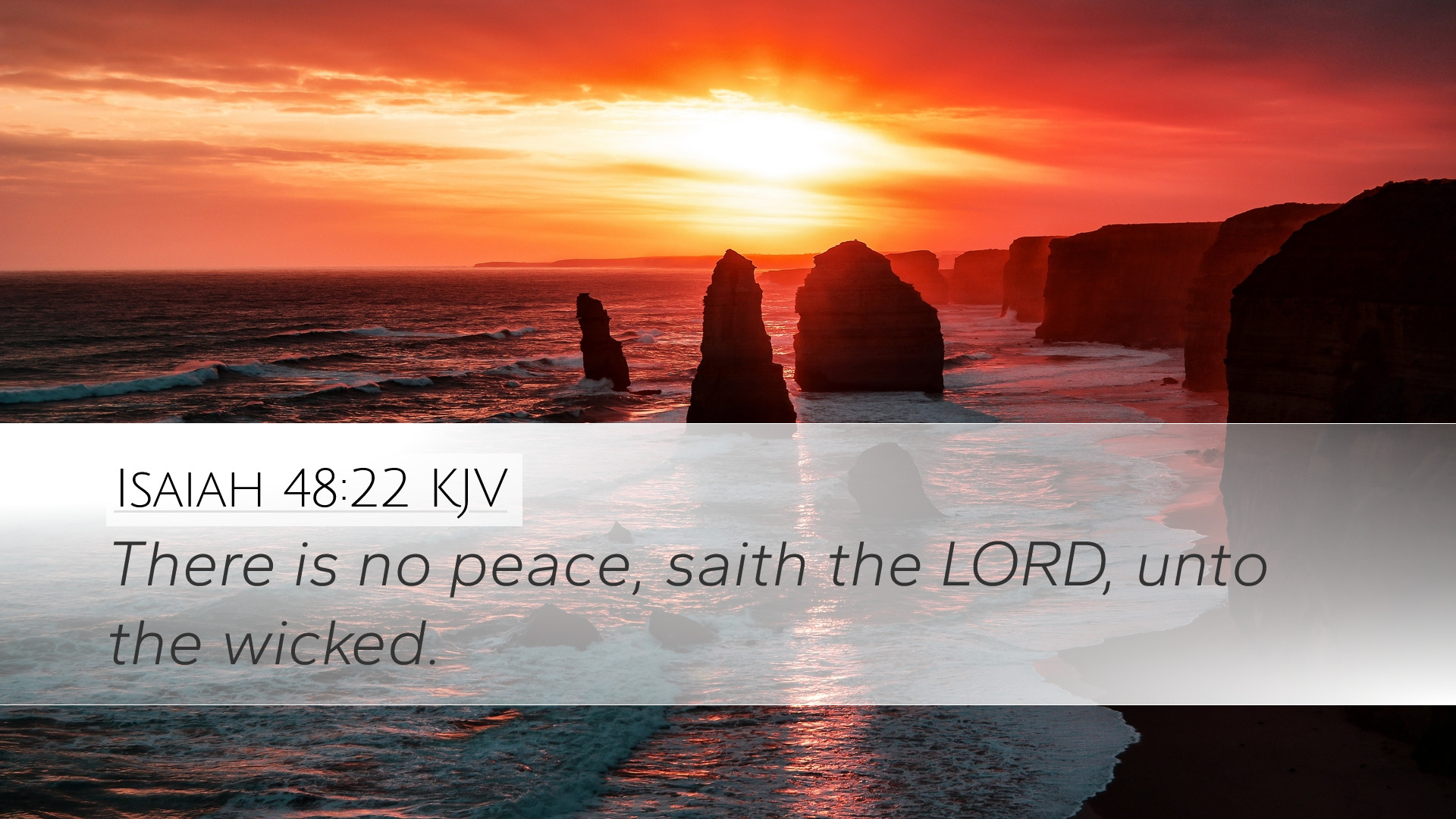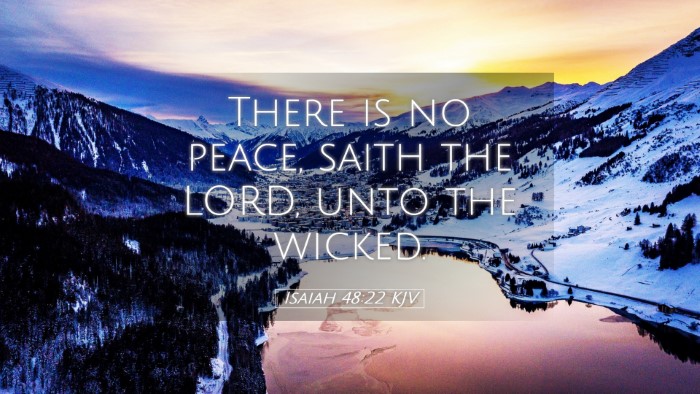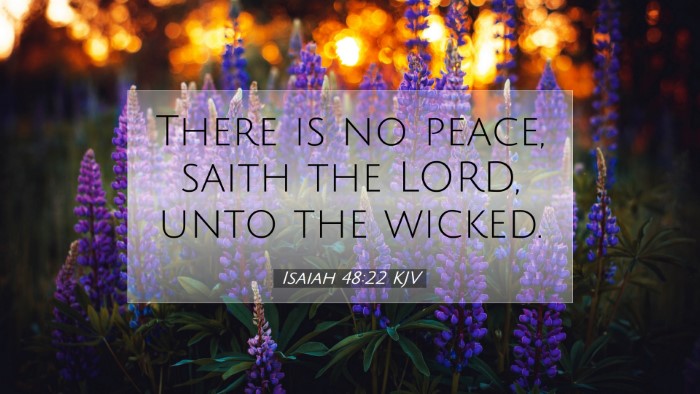Commentary on Isaiah 48:22
Verse: "There is no peace, saith the Lord, unto the wicked."
Introduction
This verse stands as a poignant declaration of God's judgment on the wicked, emphasizing the absence of true peace outside of divine favor. The commentaries from various respected theologians provide insights into the nature of peace, the distinction between the righteous and the wicked, and the implications for both contemporary readers and the faithful community.
Contextual Overview
Isaiah 48 is a chapter in which the prophet Isaiah speaks to the people of Israel, addressing their spiritual condition and calling attention to their rebellion against God. The context reveals a people who have turned away from His statutes and embraced practices contrary to His will. This verse serves as a culmination of God's message, reinforcing the reality of His justice and the consequences of turning from Him.
Matthew Henry’s Perspective
Matthew Henry emphasizes that the declaration of "no peace" to the wicked indicates a profound spiritual reality. He notes that peace in its truest sense can only be found in a right relationship with God. Henry explains that while the wicked may experience a temporary sense of tranquility—crafted by external circumstances—this cannot equate to the internal peace bestowed by God upon the righteous. He states:
"True peace is a fruit of righteousness, not of wickedness; where sin reigns, peace cannot dwell."
Henry further points out that this proclamation is not merely a prediction of judgment but a revelatory statement about God's character. His holiness necessitates judgment against sin, and thus, peace will not be extended to the wicked, who remain at enmity with Him.
Albert Barnes’ Interpretation
Albert Barnes, in his commentary, focuses on the assurance of God's justice. He reiterates that God’s declaration carries weight and authority. Barnes articulates that the absence of peace is a natural consequence of wickedness:
"The wicked have no real or permanent peace; they may seek it in various ways, but it will elude them until they turn to God."
Barnes expands on the idea that this verse serves as a warning. He argues that the pervasive nature of sin leads individuals to a state of unrest, chaos, and despair, ultimately culminating in spiritual death. Barnes encourages believers to reflect on their lives and seek the peace that God offers through righteousness and obedience.
Adam Clarke’s Analysis
Adam Clarke brings attention to the emotional aspects tied to the lack of divine peace. He articulates that the Hebrew term used for ‘peace’ encompasses not only the absence of conflict but also the presence of well-being, prosperity, and wholeness. Clarke notes:
"The message here is clear: without acknowledging and repenting of one’s sins, the wicked shall not know the fullness of God's peace."
Clarke also emphasizes the practical implications of this verse for daily living. He suggests that believers must actively pursue a life characterized by obedience to God's word, suggesting that disobedience not only endangers one’s relationship with God but also robs them of the peace that comes with abiding in Him.
Application for Believers
This verse serves as a sobering reminder for believers to engage in self-examination regarding their spiritual health. It poses essential questions:
- Are we harboring any known sin that disturbs our peace with God?
- In what ways might we seek peace outside of God's parameters?
- How can we actively pursue righteousness in a world that often drowns out divine principles?
Theological Implications
Isaiah 48:22 places a spotlight on the holiness of God and the righteousness that He demands. It forces a consideration of the nature of sin and its consequences, impacting both individual believers and the corporate church. Two significant theological implications emerge:
- The Nature of Divine Judgment: The verse indicates that God's judgment is not arbitrary but a direct response to human behavior. It embodies a God who is just and holy, unable to overlook sin.
- The Concept of Peace in Scripture: This verse invites deeper exploration into the biblical understanding of peace. It challenges believers to seek peace that is rooted in reconciliation with God rather than in worldly pursuits.
Conclusion
Isaiah 48:22 is a clarion call that transcends time, offering an enduring truth with profound implications for humanity. It is a verse that speaks to the core of the human experience—our desire for peace—and the reality that such peace can only be derived from a relationship with God. Both historical and contemporary readers must grasp this truth, turning away from wickedness and seeking the enduring peace that flows from righteousness.


